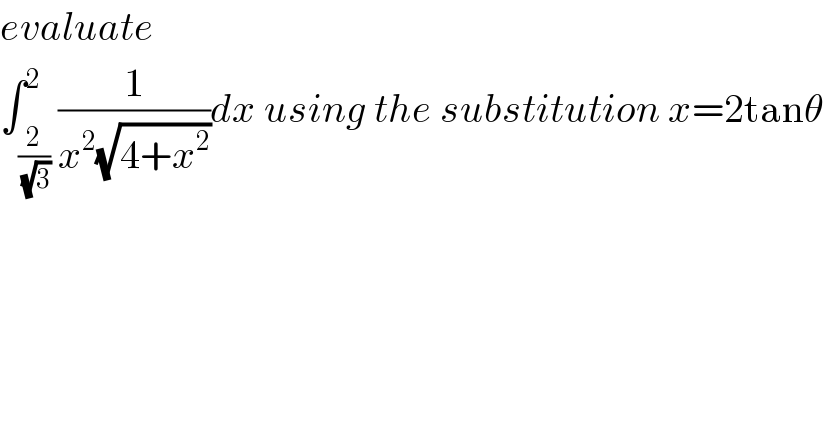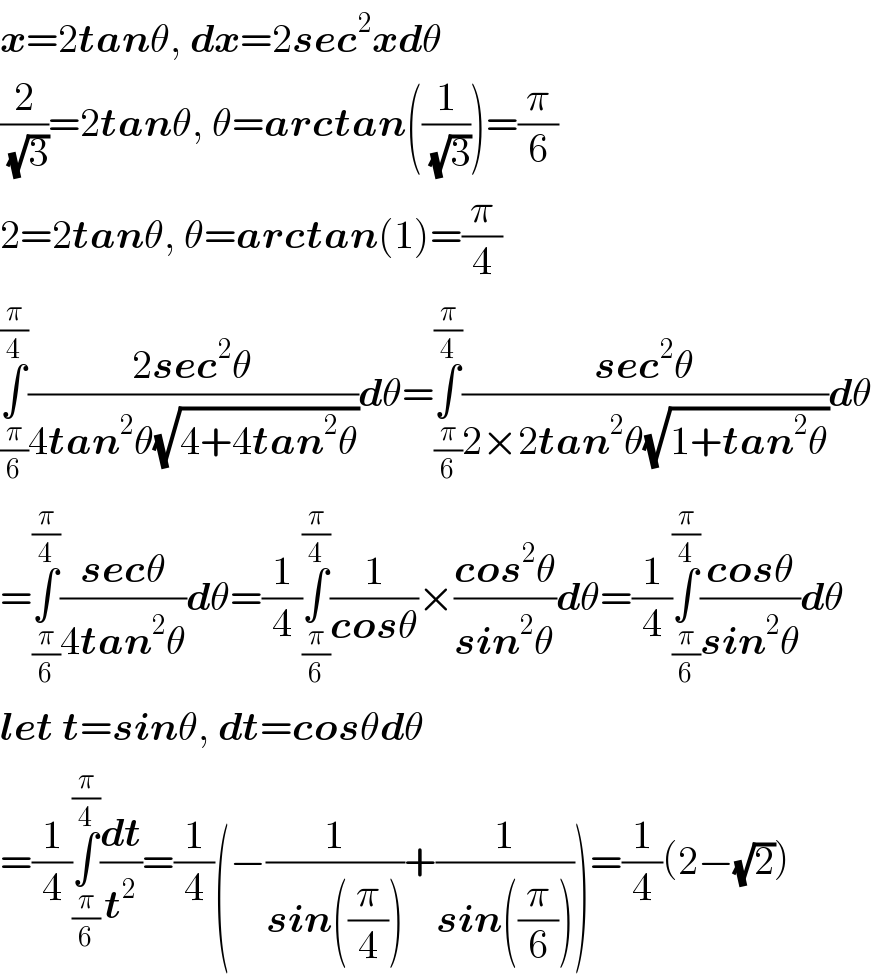Question Number 98623 by hardylanes last updated on 15/Jun/20

Answered by Kunal12588 last updated on 15/Jun/20
![x=2tanθ ⇒dx=2sec^2 θ dθ θ=tan^(−1) ((x/2)); ∫_( π/6) ^( π/4) ((2sec^2 θ)/(4tan^2 θ(√(4+4tan^2 θ))))dθ ∫_( π/6) ^( π/4) ((secθ)/(4tan^2 θ))dθ (1/4)∫_( π/6) ^( π/4) ((cosθ)/(sin^2 θ))dθ (1/4)∫_( π/6) ^( π/4) ((d(sinθ))/(sin^2 θ)) (1/4)[−(1/(sin θ))]_(π/6) ^(π/4) =(1/4)(−(√2)+2)=((2−(√2))/4)](https://www.tinkutara.com/question/Q98627.png)
Commented by hardylanes last updated on 15/Jun/20
thanks
Commented by abdomathmax last updated on 15/Jun/20

Commented by Kunal12588 last updated on 16/Jun/20

Answered by MWSuSon last updated on 15/Jun/20

Commented by hardylanes last updated on 15/Jun/20
thankiu
Answered by abdomathmax last updated on 15/Jun/20
![let I =∫_(2/( (√3))) ^2 (dx/(x^2 (√(4+x^2 )))) let do the changement x =2sht ⇒t =argsh((x/2)) ⇒ I = ∫_(ln((1/( (√3)))+(√(1+(1/3))))) ^(ln(1+(√2))) ((2ch(t)dt)/(4sh^2 t(2cht))) = ∫_(ln((√3))) ^(ln(1+(√2))) (dt/(4(((ch(2t)−1)/2)))) =(1/2) ∫_(ln((√3))) ^(ln(1+(√2))) (dt/(((e^(2t) +e^(−2t) )/2)−1)) =∫_(ln((√3))) ^(ln(1+(√2))) (dt/(e^(2t) +e^(−2t) −2)) =_(e^(2t) =u) ∫_3 ^((1+(√2))^2 ) (du/(2u(u +u^(−1) −2))) =∫_3 ^(3+2(√2)) (du/(2(u^2 +1−2u))) =(1/2) ∫_3 ^(3+2(√2)) (du/((u−1)^2 )) =(1/2)[−(1/(u−1))]_3 ^(3+2(√2)) =(1/2){(1/2)−(1/(2+2(√2)))} =(1/4){1−(1/(1+(√2)))} =(1/4){((√2)/(1+(√2)))} =(1/4)×(((√2)((√2)−1))/1) =(1/4)(2−(√2)) =(1/2)−((√2)/4)](https://www.tinkutara.com/question/Q98662.png)
